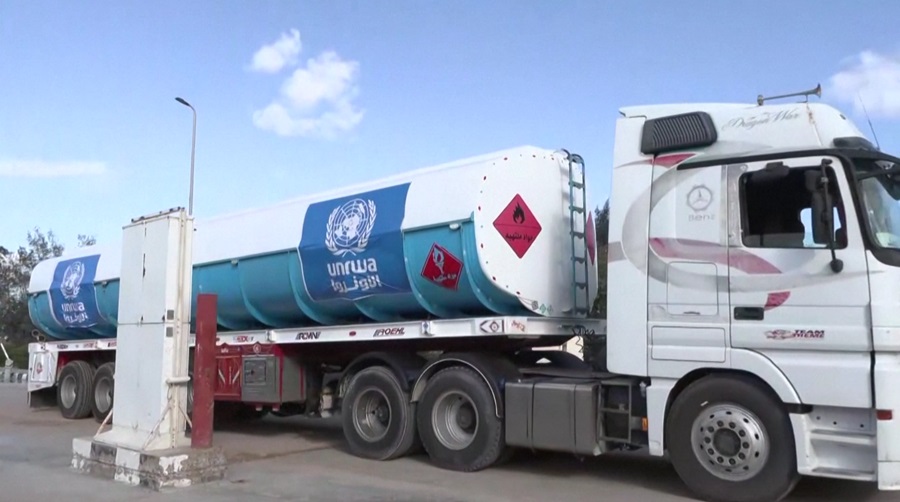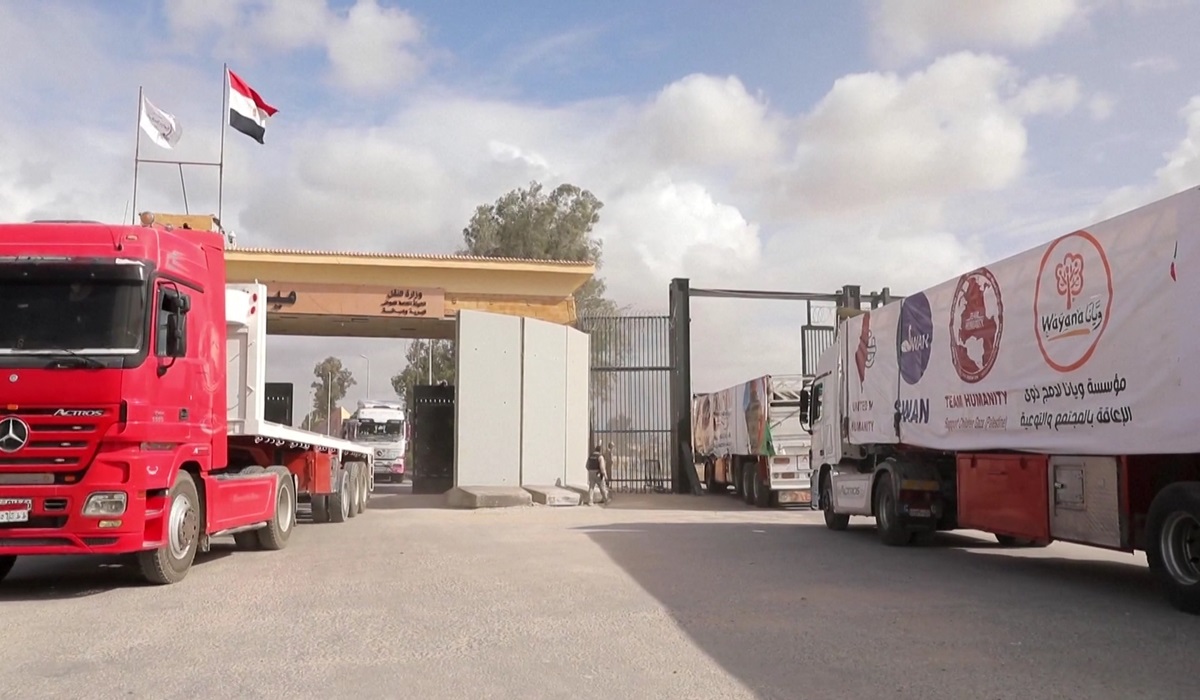The Rafah Border Crossing, a lifeline for Gaza connecting it to the outside world, has seen a surge in activity during the recent lull in the Israel-Palestine conflict. Yasser Hakim, reporting from the front lines, brings us a snapshot of the intensified humanitarian efforts in the region.
The truce has provided a window for aid trucks to enter Gaza, doubling the daily average to about 200 trucks. While this is a welcome increase, it falls short of the United Nations Agency for Palestinian Refugees’ recommendation of at least 500 aid trucks daily. The delivered assistance encompasses vital supplies such as water, food, medical equipment, tents, fuel, and gas, essential for the survival and well-being of the people in Gaza.
Truck drivers like Abdullah from the UAE share their experiences of delivering much-needed field hospitals. Despite challenges, the response from the Gazan population has been positive, emphasizing the significance of international support during these trying times.

The extended truce has facilitated the evacuation of a larger number of injured Palestinians to Egypt for medical treatment. According to Khaled Abdel Ghaffar, the Egyptian Health Minister, over 24 hospitals currently host Gazans, reflecting a collaborative effort with many countries. This cooperative approach underscores the importance of international solidarity in addressing the pressing health crisis.
Officials highlight the dire situation in Gaza, where only nine out of 35 hospitals remain operational, serving nearly 2.3 million people. Shocking statistics released by Palestinian and Egyptian health ministers as of November 28th, reveal that 600 injured Palestinians are being treated in Egypt. Moreover, 1.3 million residents are living in shelters, and the conflict has claimed over 16,000 lives, with 6,000 individuals still missing, including 1,700 children.
The Palestinian Health Minister, Mai Al Kaila, emphasizes the urgent need for a permanent ceasefire, increased humanitarian aid, and international support. She calls on the UN and global health organizations to intervene, urging the occupying army to permit medical teams and volunteers into Gaza. The shortage of medical personnel, particularly in northern Gaza, necessitates immediate attention. Time is of the essence as the people of Gaza continue to bear the brunt of the conflict’s devastating impact.









